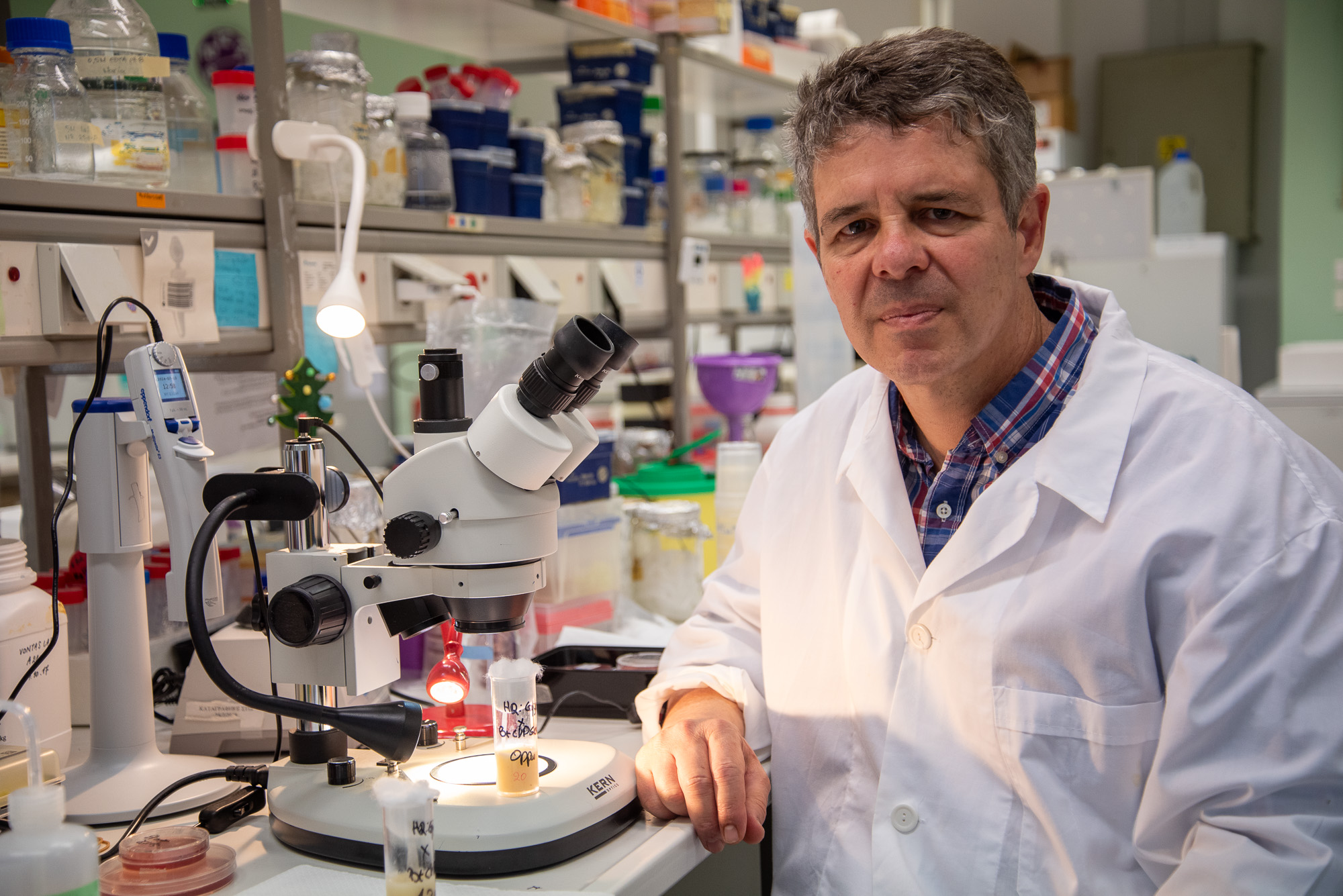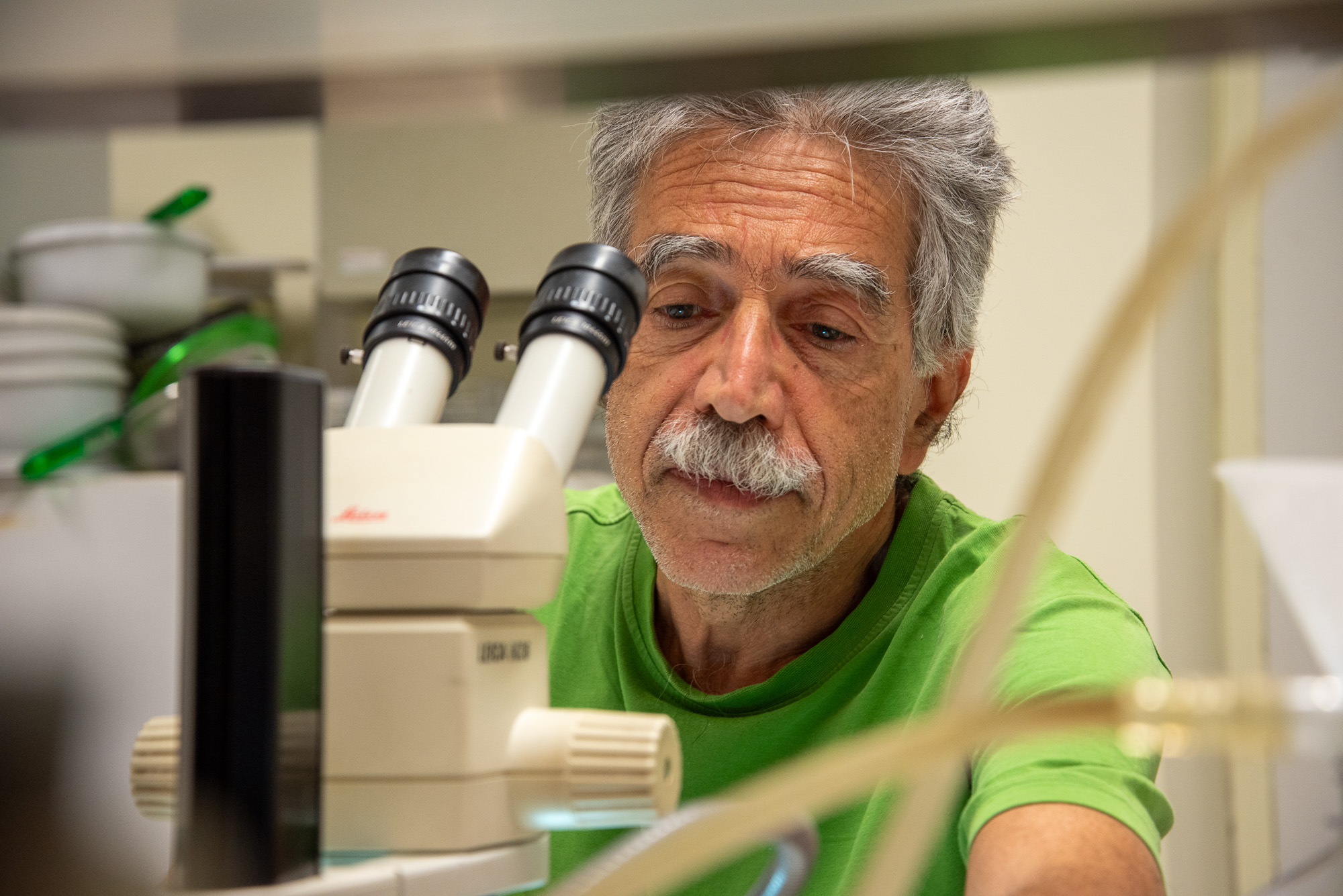Distinctions

John Vontas and Christos Delidakis are elected as new members of EMBO
Dr. John Vontas, Director of the Institute of Molecular Biology and Biotechnology (IMBB) of FORTH and Professor of the Agricultural University of Athens (AUA), along with Dr. Christos Delidakis, Principal Investigator at IMBB and Professor at the University of Crete, were elected as new members of the European Molecular Biology Organization (EMBO).
This international distinction is awarded based on outstanding contribution to science and advancement of life sciences, through high-level innovative research and achievements. It is also a recognition of the scientific excellence of the research carried out at IMBB. It is worth noting that 10 out of the 20 Greek Scientists that have been elected as EMBO Members, work at FORTH.
In EMBO’s 60th anniversary, 120 new Members from 37 countries/territories join the community this year. EMBO’s aim is to promote scientific excellence in the field of Molecular Biology. Its community comprises more than 2,100 Members, 92 of whom are Nobel laureates.
“The new EMBO Members have been recognized for accomplishments that cover the spectrum of life science research, including work that has advanced understanding of how infectious disease spreads, the intricacies of ocean nutrient cycles, the mysteries of cellular signaling networks, the secrets of how plants survive in desert environments, and the links between the biology of our brains and our emotions”. Fiona Watt, EMBO Director, expressed her warmest congratulations to the newly elected members, recognizing their immense contributions to fundamental Life Science research (EMBO Comms, 2024).
The official welcoming ceremony of Prof. John Vontas and Prof. Christos Delidakis, as New Members of the European Molecular Biology Organization, will take place in Heidelberg, Germany, at the end of October.

John Vontas received his PhD in Insect Genetics from the AUA (1997) and subsequently post-doc Marie Curie fellowships allowed him to work at Cardiff University, Liverpool School of Tropical Medicine and IMBB. He was appointed Lecturer at AUA (2004), Associate Professor at the Department of Biology, University of Crete (2008-2013), Professor at AUA (2014-today) and Director of IMBB-FORTH since 2021. He worked at the Innovative Vector Control Consortium in 2013-2014. He teaches in national and international courses and has supervised more than 40 PhD students and Post-Doctoral Researchers, some pursuing careers in academia and industry. His research focuses on biotechnology-based approaches for the control of mosquito disease vectors and agricultural pests, with emphasis on the analysis of mechanisms by which insects develop resistance to insecticides and the identification of novel insecticide targets. He has published over 250 papers and he was among the highly cited researchers according to Clavirate in 2021 and 2022. He has given a large number of invited talks worldwide and organized many international conferences and symposia. He is Associate Editor and/or Editorial Board member in several journals in his field. He is panel member at the ERC and many funding organizations in Europe and worldwide. He has coordinated a long number of multidisciplinary projects (GSRT, EU Horizon2020, Horizon Europe, Industry), raising a total budget of more than 30M€. He has also served as a member of the Sectoral Scientific Council in the field of Biosciences of the General Secretariat of Research & Innovation (GSRI) and member of the Advisory Committee of Hellenic Foundation for Research and Innovation (HFRI).

Christos Delidakis received his degree in Biochemistry from the University of Cambridge in 1981 and his PhD in Molecular Biology from Harvard University in 1988. His PhD and subsequent postdoctoral work at Yale University introduced him to the field of molecular developmental biology, in large part thanks to two mentors, the late Fotis Kafatos and Spyros Artavanis Tsakonas, both EMBO members. He got appointed as an Assistant Professor at the University of Crete in 1993 and rose to the position of an Associate Professor in 1999 and a full Professor in 2008. Throughout this period, he has been a Collaborating Researcher at IMBB, FORTH, where most of his research activities take place. Over the past 30 years, his research has centered on how the same signaling and gene regulatory modules are redeployed in different developmental and disease settings. He has been using the fly Drosophila as his lab's model system and the molecular players that he has focused on are the Notch signalling pathway and the E(spl)/Hes transcription factors. His group has an extensive set of genetic tools to manipulate this system and large expertise in immunohistochemistry, confocal microscopy and genomics. More than 50 publications in peer-reviewed journals have resulted from this work. He has mentored 6 postdoctoral fellows, has awarded 16 PhDs and has supervised more than 50 Master and undergraduate students. He is very active in undergraduate and graduate teaching at the Department of Biology, University of Crete. He regularly participates, and has occasionally chaired, administrative bodies, like the curriculum steering committee of the Biology Department and the Scientific Council of IMBB-FORTH. He has coordinated more than 10 national and international research grants and has collaborated in many more.
EMBO press release (2024, July 9) “Outstanding scientists elected to EMBO Membership” https://www.embo.org/press-releases/outstanding-scientists-elected-to-embo-membership







